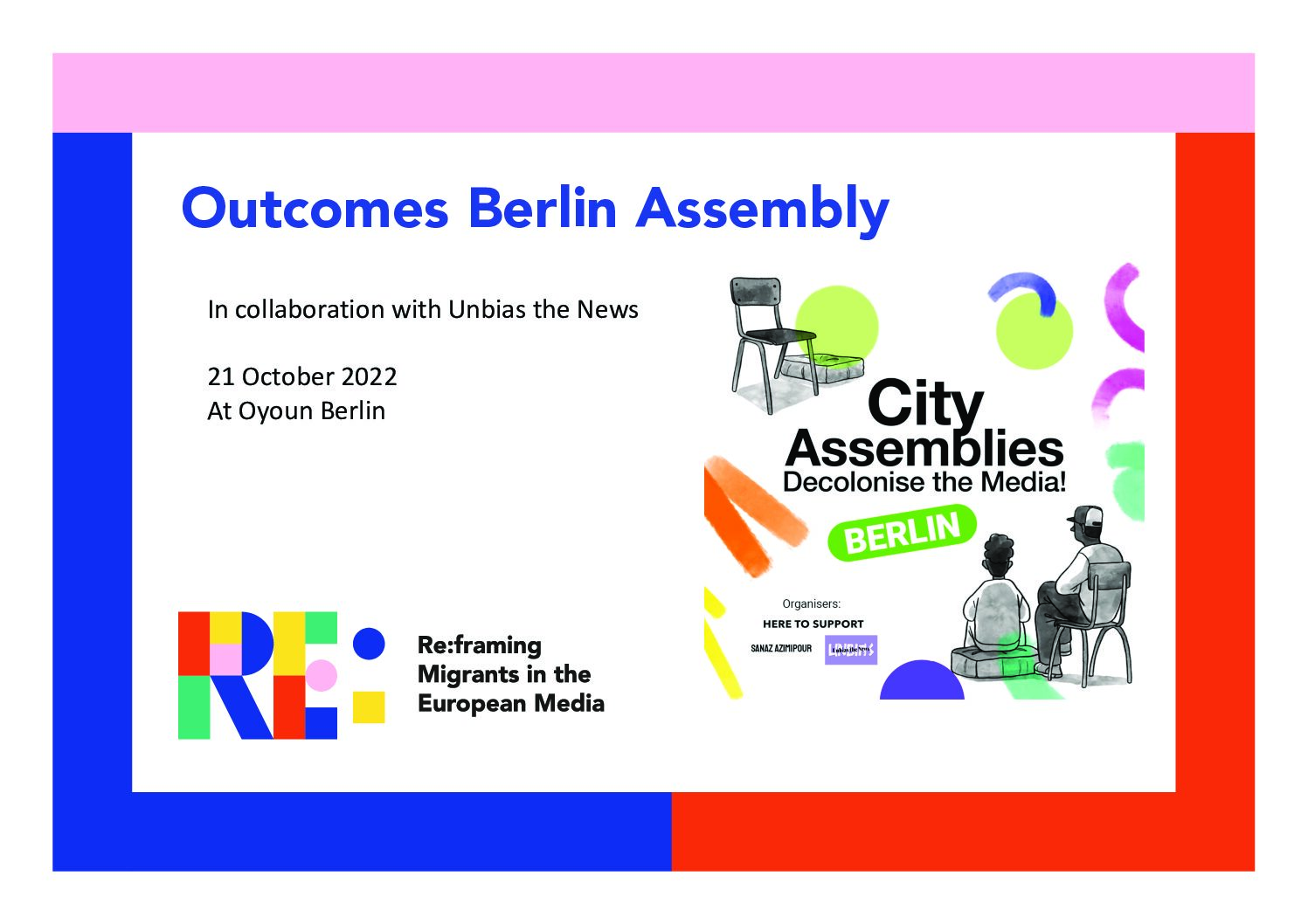
As part of Re:Framing Migrants in European Media project, Here to Support has started a series of City Assemblies in six different cities: Amsterdam, Barcelona, Berlin, Lampedusa, Naples, and Warsaw since September. The assemblies are till the end of the 2022.
Media shapes our imagination and structures our interactions in the public sphere. Across Europe, migrant communities and individuals are raising their voices to reclaim their rights to self-representation and to participate in those debates that help us reach a more open and inclusive society. These developments in the media and the public debate are being shaped by a local context and local communities. During the assemblies, we are aiming to dive into the local context to map and discuss the current struggles and their solutions in six different European cities.
The assemblies are taking place in Amsterdam, Barcelona, Berlin, Lampedusa, Naples, and Warsaw between September – December 2022. Each City Assembly is organised as a collaboration between a local host(s) and Here to Support. The assemblies are small-scale one-day events targeted at grassroots organisations, journalists, activists and migrant communities in the city. During the assemblies we will gather examples of practices and (policy) recommendations about the framing of migration in media. The input given within the assemblies will both be shared with other assemblies and will be presented along with the closing conference in May 2023 in Pakhuis de Zwijger, Amsterdam.

All the six cities are having different focuses, providing us with a wide overview of the framing of migration all over Europe. We zoom into the local context of the country and the cities, to discover the local barriers and obstacles. Putting all this information next to each other will also provide us with an opportunity to better understand the cultural differences in Europe and the various solutions found in each city.
The assemblies serve as a tool for community building, which will benefit the whole project. Each city and local host will attract its own network to the assembly, which in turn will be added to the ongoing ‘mapping’ efforts throughout the Re:Framing migration in European Media project. The complete network, outputs, conclusions and debates of each assembly will in turn, be shared with the complete community of the project.
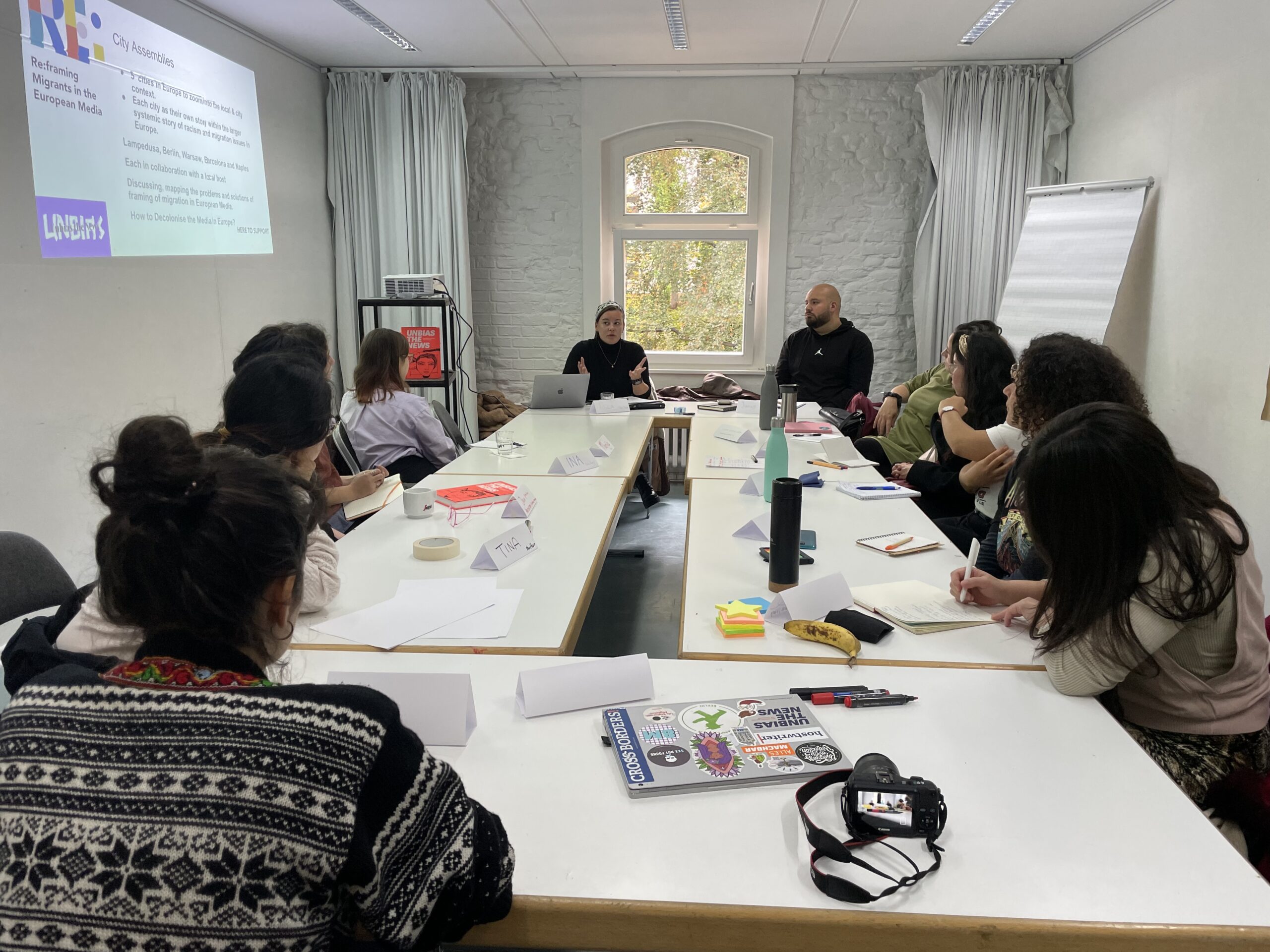
What happened during the assemblies?
The first assembly was organised in Lampedusa as part of the larger conference Comitato tre Ottobre between 29 September and 3rd of October. The focus during this assembly was on the concept of arrival cities and the impact of propaganda and information from the media on those arrival places.
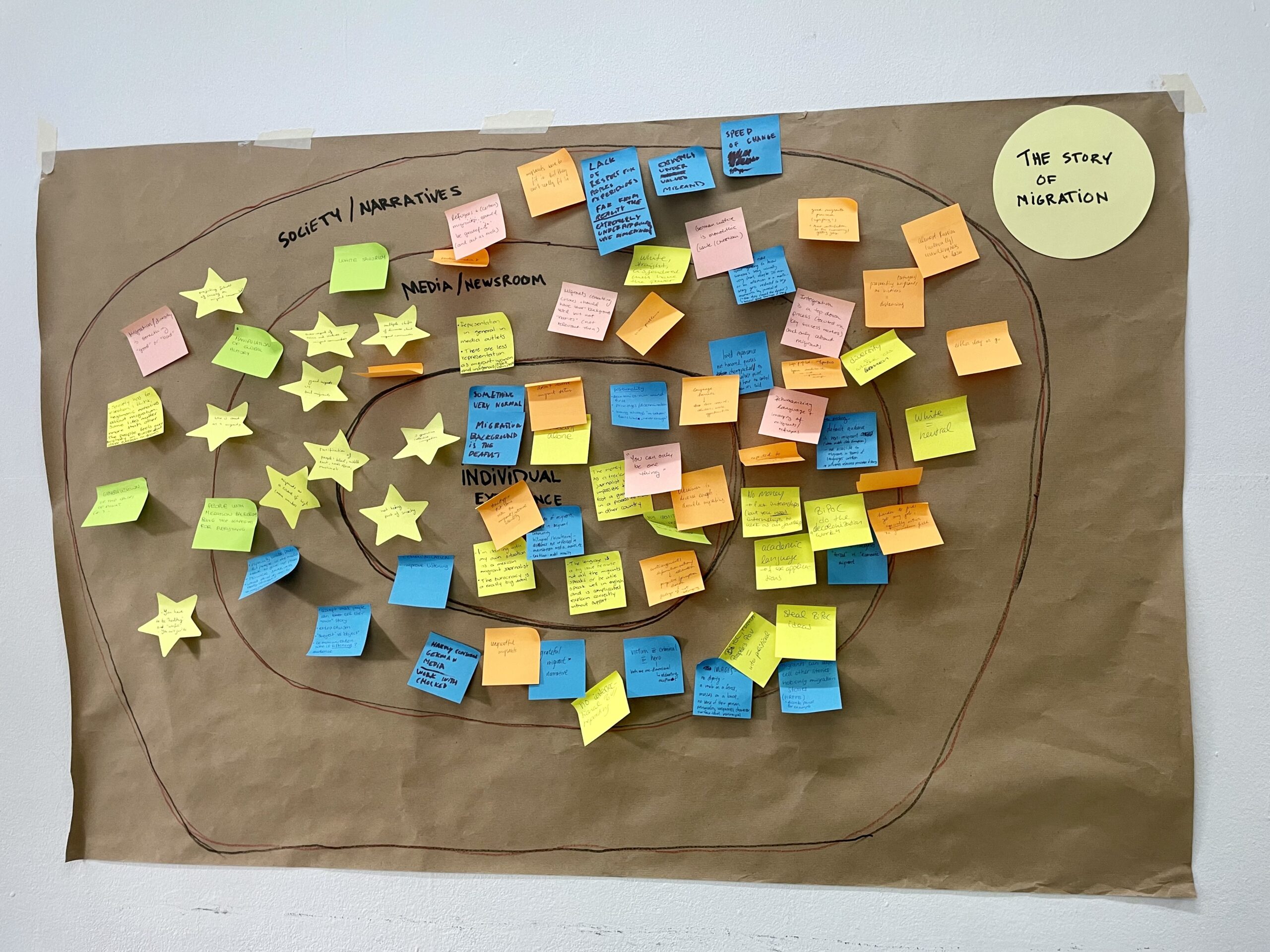
In the municipality building, Andi Nganso moderated the participatory session: “Between Propaganda and Information: the Lampedusa Case“. Dedicated participants talked for two hours about how media frames and reports about the Island of Lampedusa and the consequences that related to how migrants are perceived, locally but also in the rest of Europe.
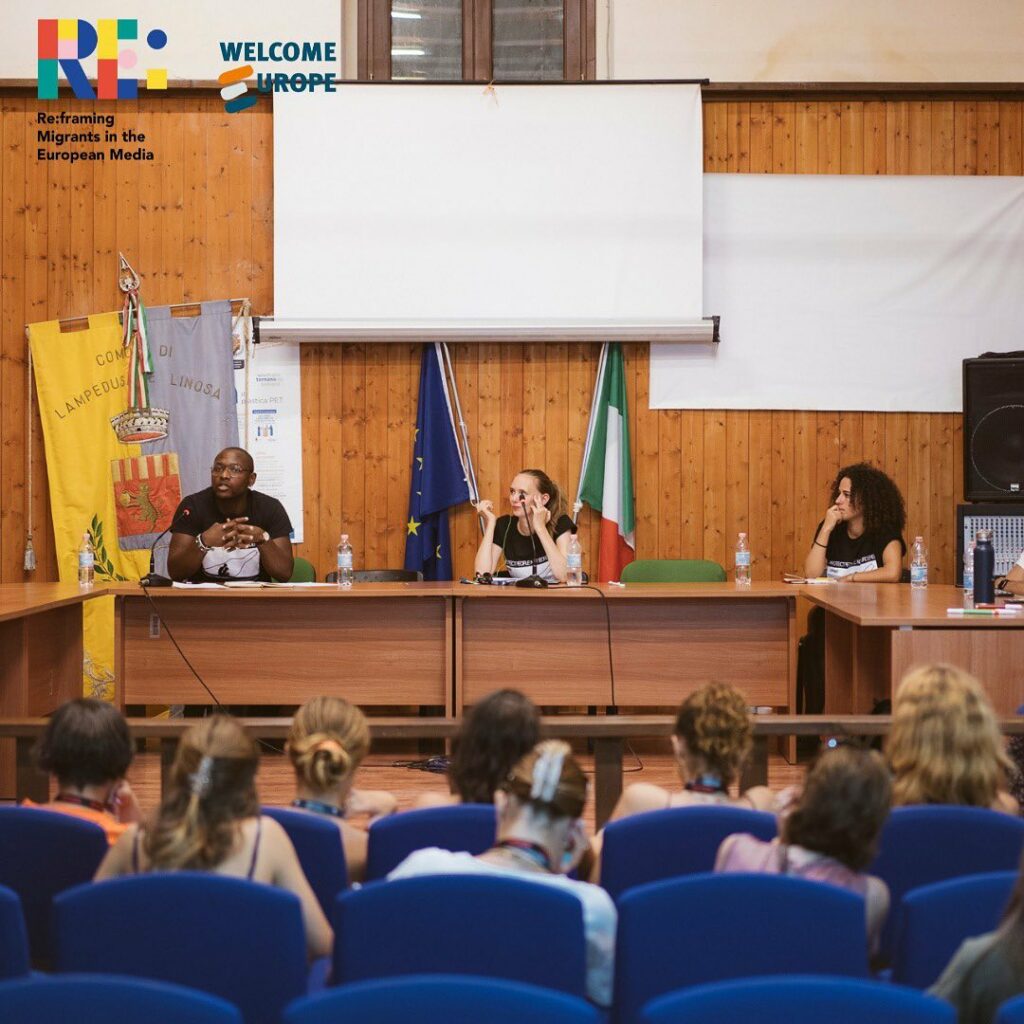
The second city is Amsterdam (end of September), where together with Refocus Media Lab workshops were organised with undocumented people in the city about how they can be their own reporters.
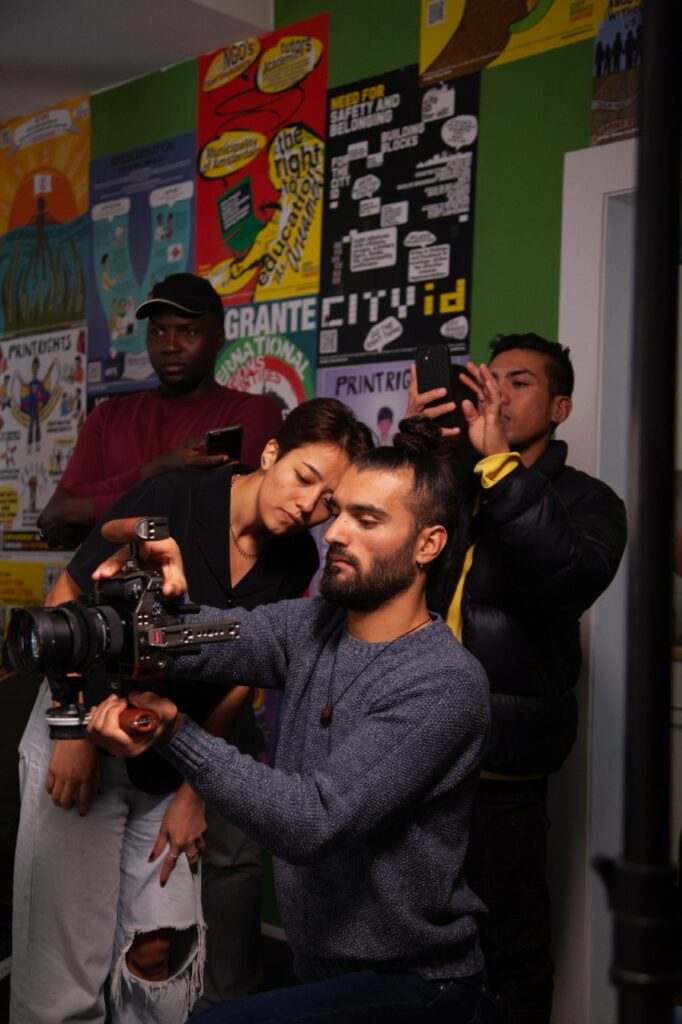
The third assembly was hosted by Berlin on 21 October. Together with Unbias the News, a small one-day assembly is organised in Oyoun. Oyoun is a community and cultural centre focused on migrant communities in Berlin. Here we gathered with a small group to discuss and map the problems and solution to the migrant narratives in the media in Germany.
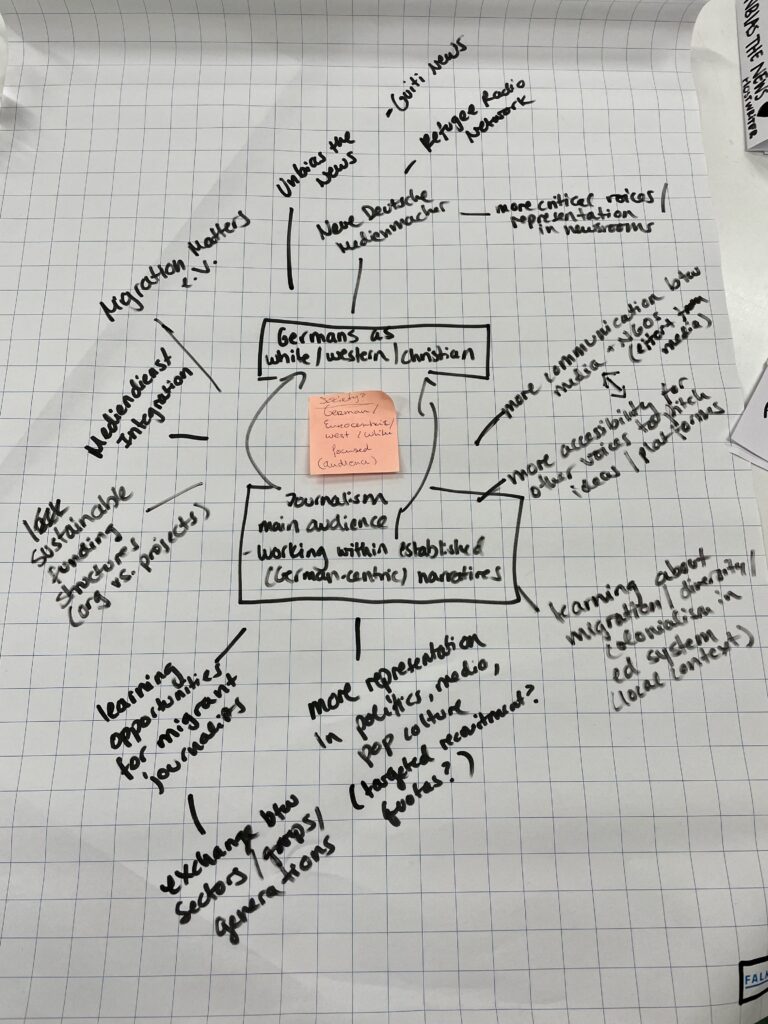
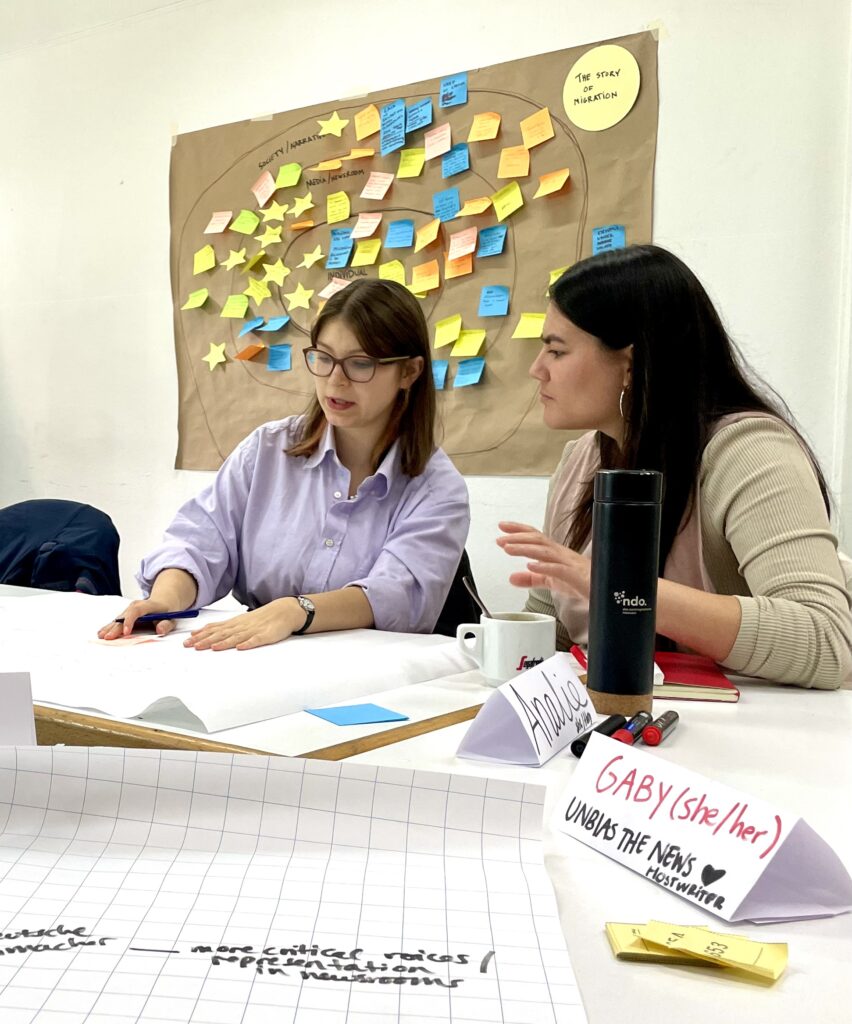
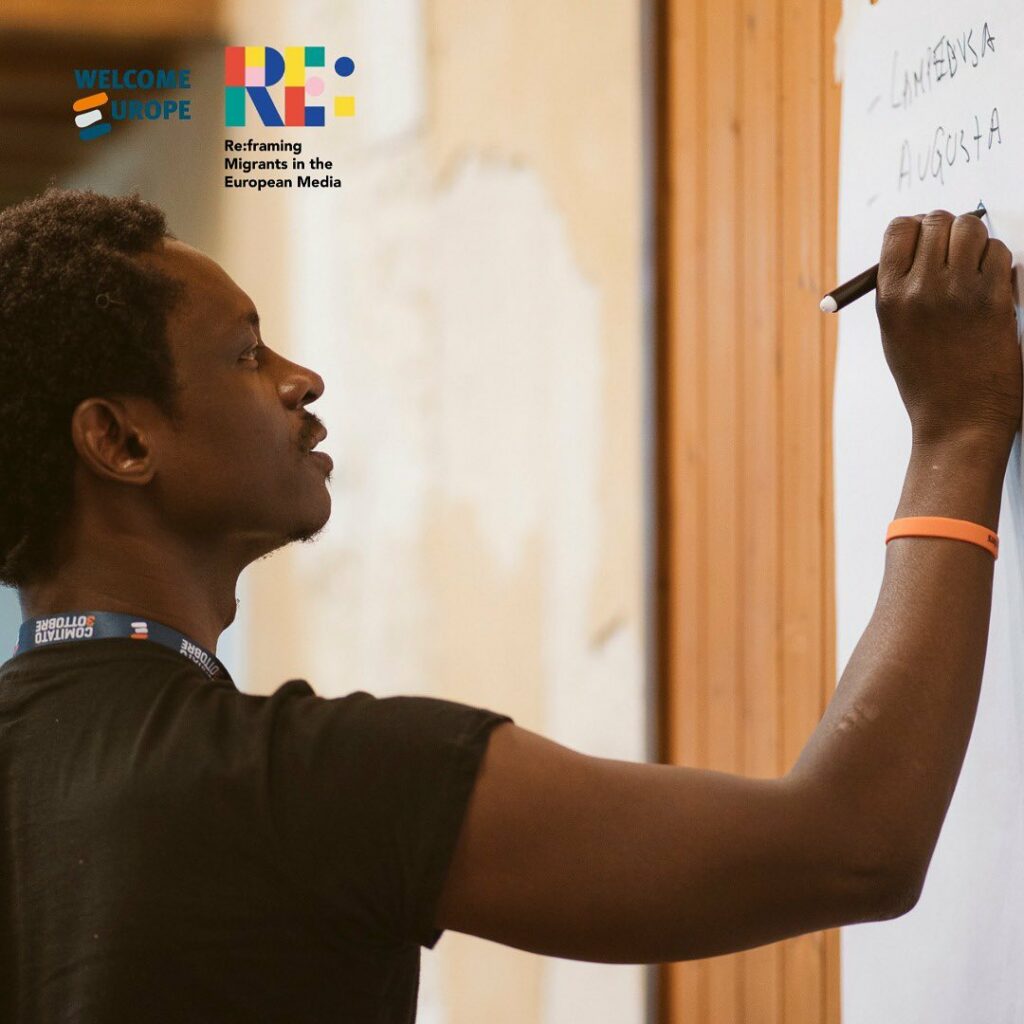
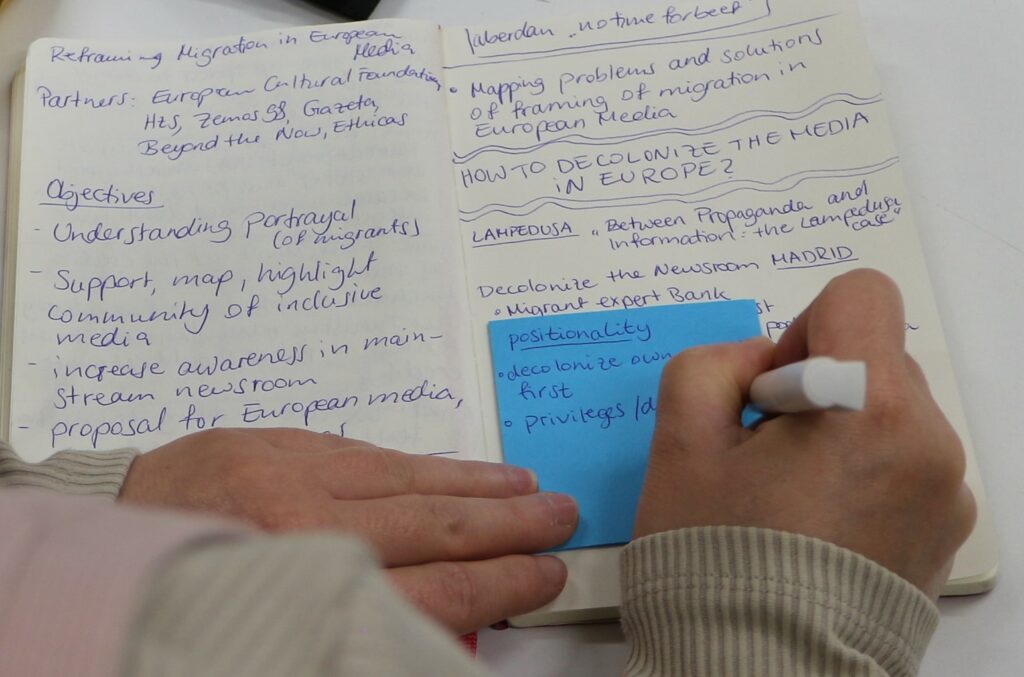
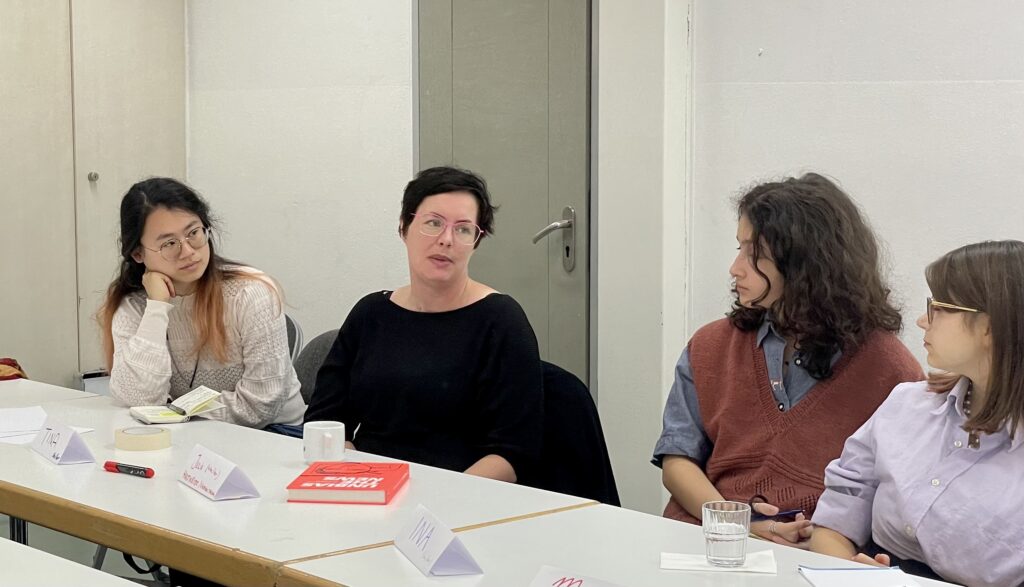
Words by Here to Support
Journalists, media students and activists gathered in Oyoun for a 4-hour long work session to discuss how to ‘Decolonise the Media‘ in Germany. The first round was focused on mapping the experiences in relation to the framing of migration on three levels: Individual experiences, experiences in the newsroom, and how these translate to society. The second round focused on solutions, ideas and existing practices to overcome 4 of those experiences. A huge thank you to all the participants who came up with so many beautiful ideas, shared their personal experiences and made the day!
After Berlin we turned our gaze towards Warsaw on 8 of November, where we teamed up with Krytyka Polityczna for a one-day event bringing together researchers, journalists, activists and migrant communities on racism and refugee reception in Poland.
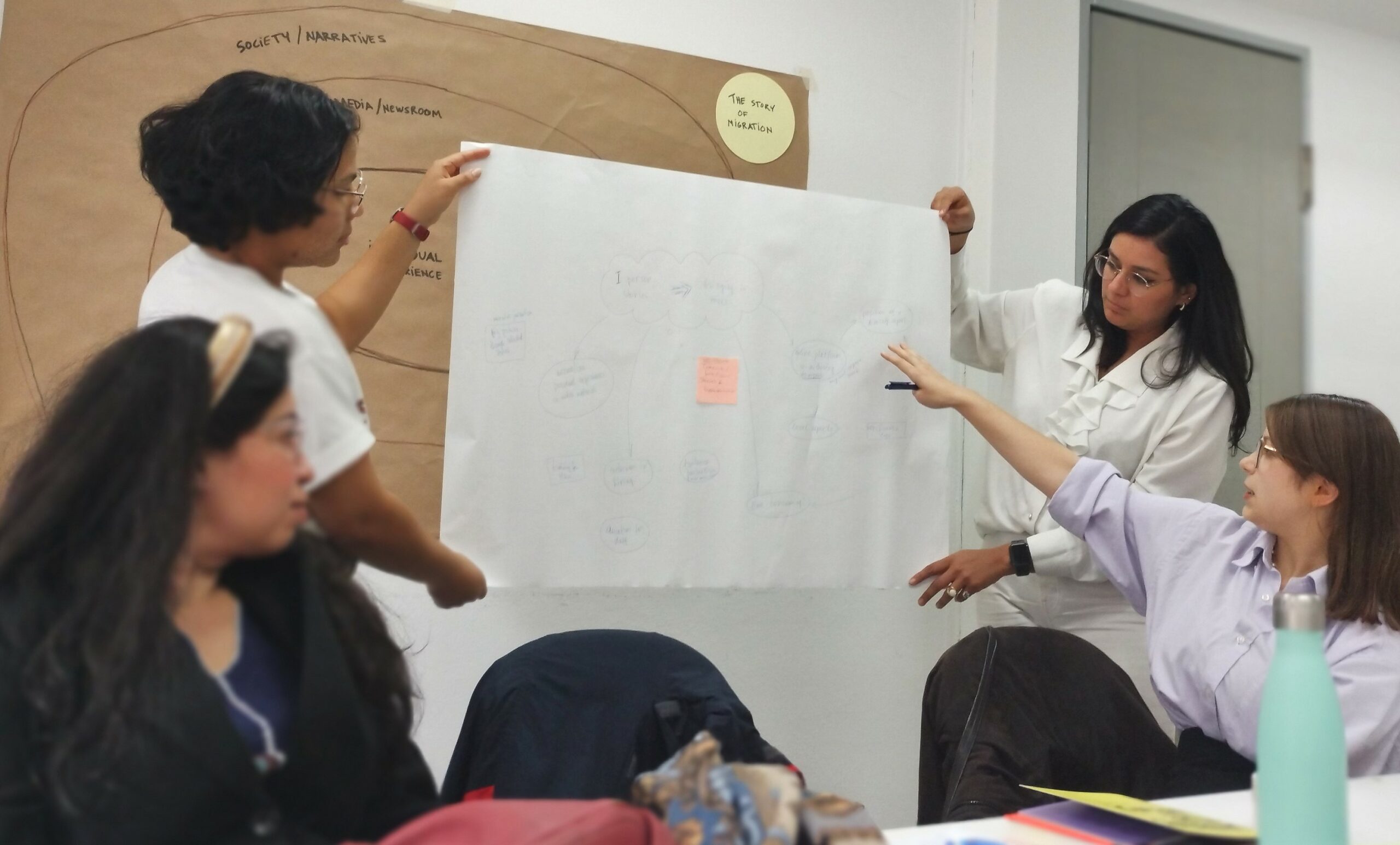
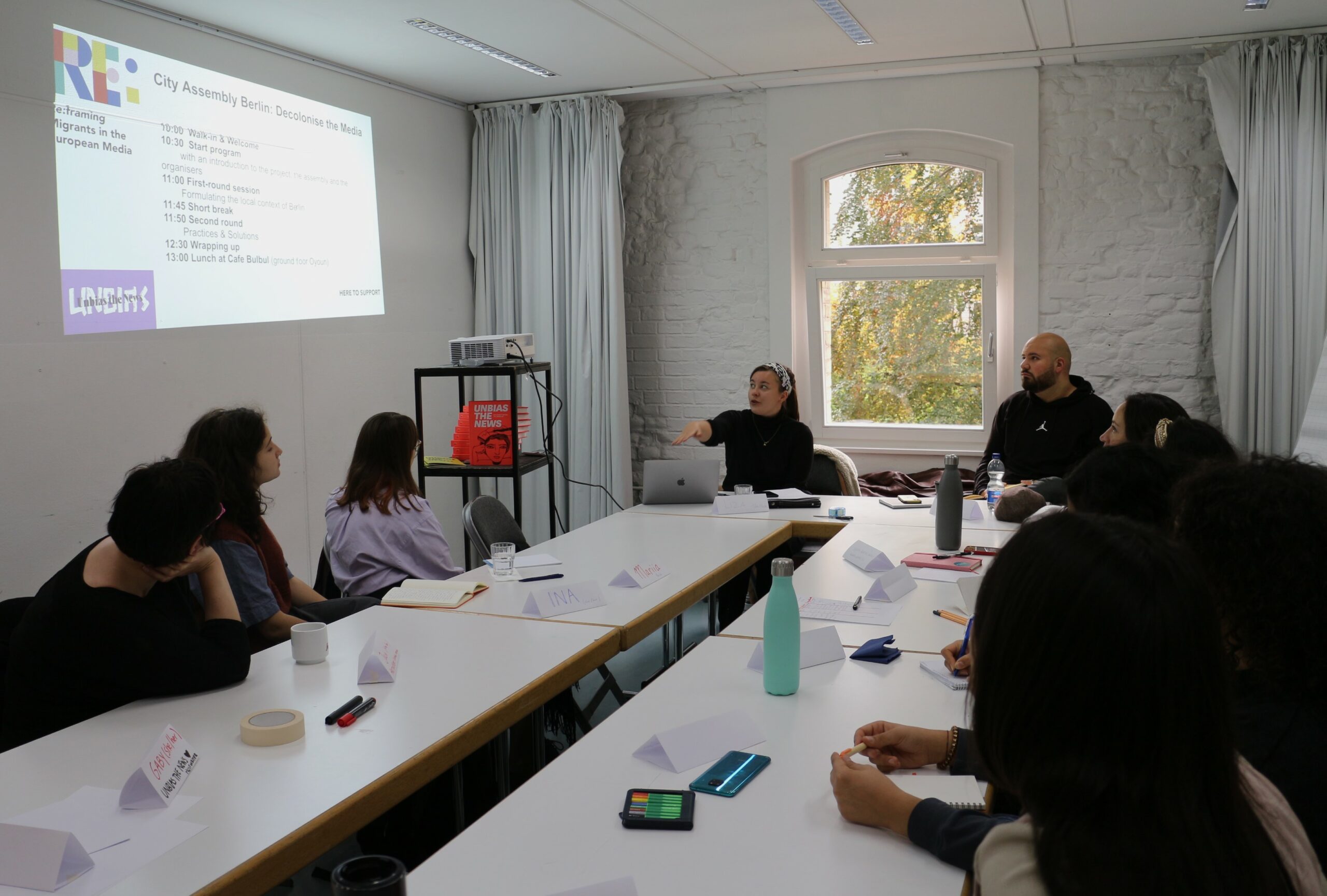
The participants of the assembly came together in Warsaw to discuss racism and migration in Polish media, politics and society. The session looked into in detail two specific topics on two different tables. The first topic was the difference in reception of Ukrainian refugees after the recent Russian invasion and before the invasion.
The second table focused on the current situation related to both the Belarusian and Ukrainian borders. The questions discussed were: How are the opinions of the local residents changing on the Belarusian border with less media attention and military presence? What are the activists doing to help the refugees on the border and how is racism complicating their work to provide basic human rights?
A couple of days after our fourth assembly, we changed our route from Warsaw directly to Naples on 10 November in collaboration hosted by the MMRN in Ex OPG. We discussed the role of the media in Italian politics towards refugees, the effects on the community of MMRN and what they do to turn the tables.
Meanwhile, we analysed recent cases that MMRN has faced, and together we looked at some videos produced by activists including a video produced in collaboration with journalists from Al- Jazeera, to counter and reframe images produced by mainstream media. How do we amplify the voices of migrants in reception centres? What is the importance of mobilising voices and bottom-up actions to counter racist narratives?
In addition to the five city assemblies which had taken place around Europe, finally, the last assembly took a place in Barcelona together with Bea Duodu, in the first week of December. In Barcelona, Here to Support brought together a group of activists and freelance journalists who also work for mainstream national newsrooms.